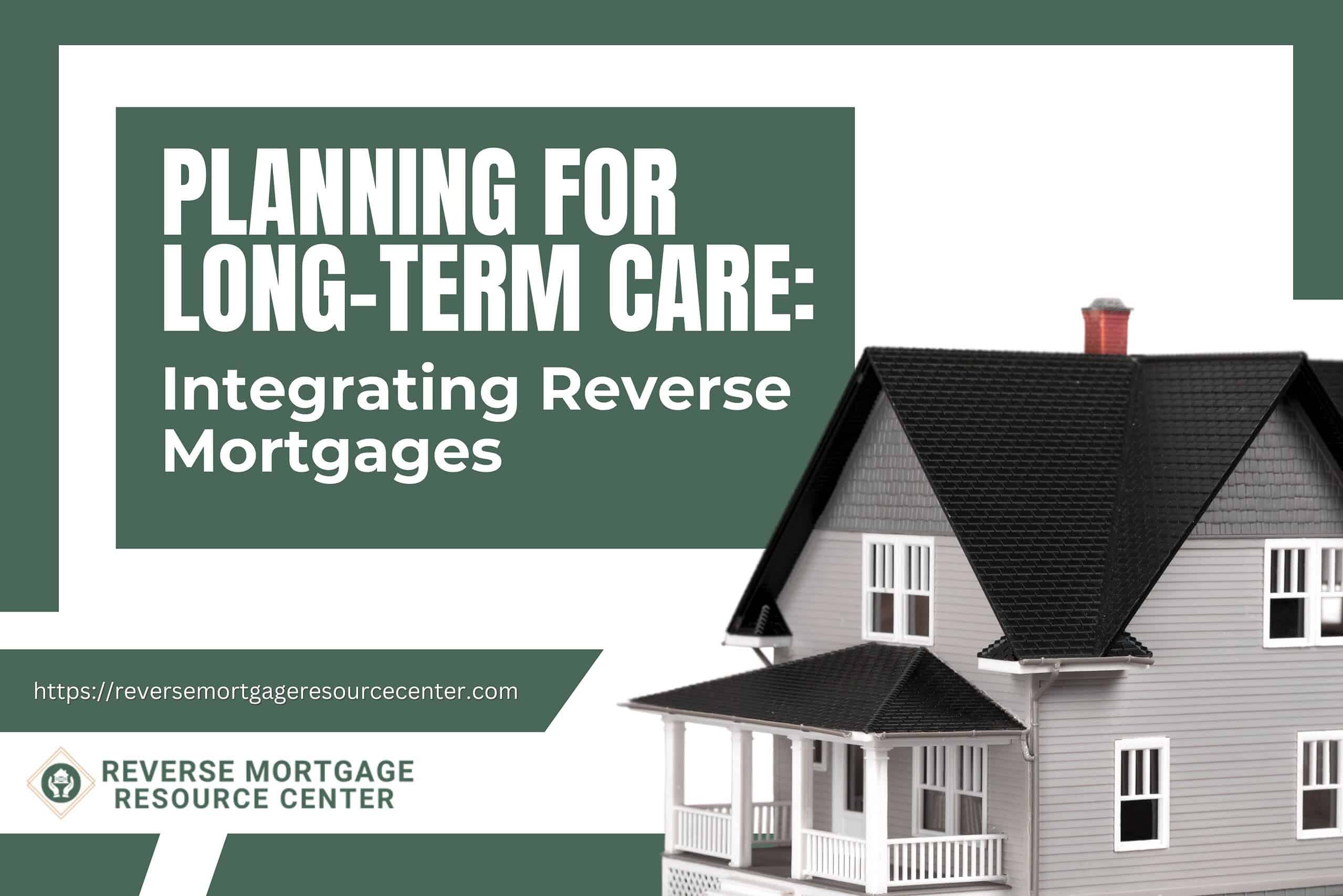Planning for Long-Term Care: Integrating Reverse Mortgages
As seniors embark on their retirement journey, planning for long-term care becomes a crucial component of their financial strategy. The prospect of health-related expenses can pose a significant challenge to the financial well-being of retirees. In this article, we will delve into the financial implications of long-term care and explore how reverse mortgages can be a strategic tool to support and enhance one’s retirement plan. Expert advice on balancing financial resources for health-related expenses will also be highlighted to guide seniors facing financial challenges in their retirement years.
The Financial Implications of Long-Term Care in Retirement
Long-term care, often associated with healthcare needs that extend beyond the scope of basic medical care, can exert a substantial financial burden on retirees. The costs of assisted living facilities, in-home care, and nursing homes continue to rise, making it imperative for seniors to incorporate these potential expenses into their retirement planning.
Rising Healthcare Costs
One of the primary challenges seniors face in retirement is the unpredictability of healthcare costs. As individuals age, the likelihood of requiring long-term care services increases, and the associated expenses can escalate rapidly. Without a comprehensive plan in place, retirees risk depleting their savings and assets, leaving them financially vulnerable during a time when financial security is paramount.
Traditional Funding Options
While there are various funding options available for long-term care, relying solely on personal savings or traditional insurance may not provide a sufficiently robust safety net. Traditional insurance plans often come with high premiums, coverage limitations, and the risk of premiums increasing over time. This leaves many seniors seeking alternative solutions to safeguard their financial future.
Reverse Mortgages: A Strategic Tool for Long-Term Care Planning
Reverse mortgages have emerged as a valuable financial tool for seniors looking to unlock the equity in their homes to address the challenges of long-term care. These financial instruments enable homeowners aged 62 and older to convert a portion of their home equity into readily accessible funds, which can be used to cover various expenses, including those associated with long-term care.
Accessing Home Equity Without Selling
One of the key advantages of reverse mortgages is that they allow seniors to access the equity in their homes without the need to sell their property. This is particularly appealing for those who wish to age in place and maintain the comfort and familiarity of their own home while addressing their long-term care needs.
Flexible Disbursement Options
Reverse mortgages offer flexibility in terms of disbursement options. Seniors can choose to receive the funds as a lump sum, a line of credit, monthly disbursements, or a combination of these methods. This flexibility empowers individuals to tailor their financial strategy to align with their unique long-term care requirements.
No Monthly Mortgage Payments
Another notable feature of reverse mortgages is that borrowers are not required to make monthly mortgage payments. Repayment only becomes necessary when the borrower sells the home, moves out, or passes away. This can alleviate immediate financial strain on retirees, allowing them to allocate resources towards essential healthcare needs.
Expert Advice on Balancing Financial Resources
While reverse mortgages present a compelling option for addressing long-term care expenses, it’s essential for seniors to approach their financial planning comprehensively. Seeking expert advice is a crucial step in ensuring a well-balanced strategy that incorporates various financial resources.
Financial Advisors: Tailoring Plans to Individual Needs
Engaging with a qualified financial advisor is a prudent decision for seniors navigating the complexities of long-term care planning. These professionals can assess individual financial situations, outline potential risks, and develop a customized plan that integrates reverse mortgages with other available resources. A tailored approach ensures that the financial strategy aligns with both current needs and future contingencies.
Legal Counsel: Safeguarding Assets and Wishes
Incorporating legal counsel into the planning process is equally important. Legal professionals specializing in elder law can help seniors establish legal documents such as powers of attorney and living wills. These documents not only safeguard assets but also ensure that individuals’ wishes regarding long-term care and end-of-life decisions are clearly outlined and honored.
Healthcare Professionals: Anticipating Future Needs
Collaborating with healthcare professionals is a proactive step in anticipating future long-term care needs. Physicians, geriatric specialists, and home healthcare experts can provide valuable insights into potential health scenarios, enabling seniors to make informed decisions about the level of care required and associated financial implications.
Wrap Up
Planning for long-term care in retirement demands a multifaceted approach that addresses both the financial and healthcare aspects of aging. Reverse mortgages offer seniors a strategic tool to unlock home equity and secure funds for long-term care expenses. However, it’s crucial for retirees to seek expert advice, including financial, legal, and healthcare perspectives, to develop a comprehensive plan that balances various resources. By integrating reverse mortgages with thoughtful financial planning, seniors can navigate the challenges of long-term care with confidence and maintain financial security throughout their retirement years.
REVERSE MORTGAGE RESOURCE CENTER ~LIVE LIFE ON YOUR TERMS~
Our Lending Team has been serving our clients since 2004. We are passionate about serving our clients with integrity to help them achieve their financial goals.







